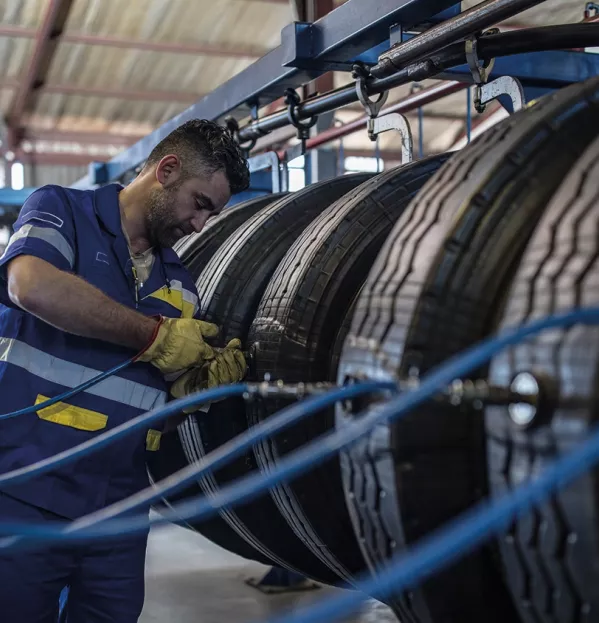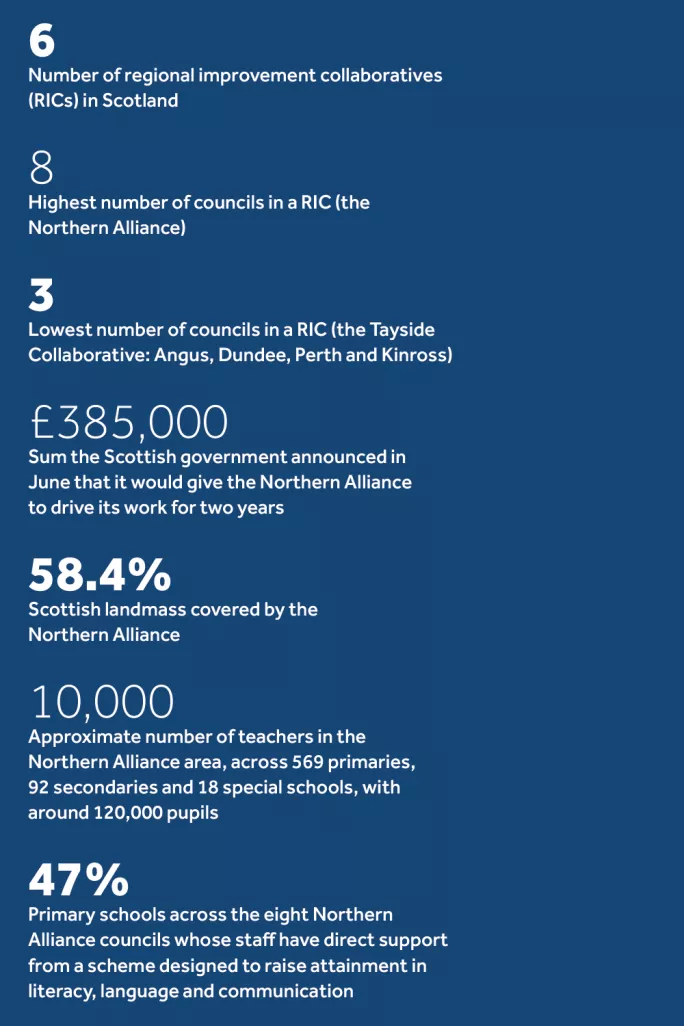Northern what? Alliance proves to be anonymous

A narrative has built up around the controversial Regional Improvement Collaboratives (RICs), repeated so often that it has been treated as a given.
It goes like this: the problem with these six groupings of local authorities is that they have been mandated by government, whereas the model collaboration between councils they are inspired by - the Northern Alliance - has proven a success because it sprung up organically.
The truth, however, appears not so simple: when MSPs travelled to one area covered by the Northern Alliance, they discovered that even the prototypical regional collaborative is not quite the roaring success it has been made out to be.
Unclear existence
The Education and Skills Committee had broken out from Holyrood to hold a meeting in Peterhead, Aberdeenshire’s biggest town, and beforehand, members held focus groups with school staff and pupils and their families.
It soon became clear that few had a firm grasp of what the Northern Alliance was for - and those who were more clued up had concerns about what it was up to.
The Northern Alliance came into being in 2015 when seven councils - later eight - jointly explored solutions to teacher-recruitment problems, but gradually took on a more pedagogical remit in pooling ideas and resources, from Shetland in the north to Argyll and Bute in the south.
During MSPs’ recent visit to Aberdeenshire, however, one focus group of guidance and additional support needs teachers was unaware of the Northern Alliance’s existence until they read background papers for the meeting. In another group of around 30 teachers and other education staff, most had not heard of the Northern Alliance until they received meeting papers.
Several members of a focus group of school leaders, meanwhile, were “unclear what impact the Northern Alliance had - and others suggested that there is little buy-in with the work of the Northern Alliance”.
Not all were aware of the curricular support produced by the alliance in areas such as literacy. Another group of headteachers and deputes was “aware of the basic idea of the Northern Alliance, but didn’t feel the collaborative had impacted very much on their day-to-day practice”.

More generally, one of the focus groups of school leaders expressed concern that RICs would be “too distant to provide the right level of support” to schools.
Moray SNP MSP Richard Lochhead said at the meeting in Peterhead: “It is clear that there is a lack of awareness among teaching staff about what the Northern Alliance does, what it has achieved and how its agendas are set.”
Aberdeenshire education and children’s services director Maria Walker replied that it was “true that teachers do not know much about the Northern Alliance” and that “the local authority is the body the headteachers identify with”, but she was more concerned about “whether the products of the Northern Alliance have an impact on learning and teaching”. She added that curriculum development and teacher education were the areas where RICs could “add value”.
Moray Council education and social care director Laurence Findlay, who is interim lead of the Northern Alliance, similarly believes that the feedback from the focus group is more about a lack of awareness of the alliance, rather than indicating that its work is not having an impact. At the Peterhead meeting, he cited the example of the eight alliance councils working together to alleviate teachers’ concerns that not enough support is offered to LGBT pupils, but conceded that “we have got to get better” at ensuring that the alliance’s work is driven by schools.
New projects
Findlay tells Tes Scotland that one new literacy project from the alliance is already being delivered to around half the 569 primary schools in the eight local authorities, with around 60 signed up for a numeracy project.
“Other work streams are just starting up, but our work is still all new,” he says. “To that end, I would not expect everyone to have heard of the Northern Alliance as an entity - there are 10,000 teachers across the alliance and we cover a huge landmass, so not all will have been involved to date.
“But our internal feedback suggests that those who have participated in the projects we are running have greatly valued them and that their practice - and student outcomes most importantly - have improved as a result. As we expand our work and our reach, we would hope other colleagues will have equally positive experiences.”
A Scottish government spokesman said: “Regional improvement collaboratives have been established across Scotland to provide a focus on areas where, by working in partnership, the provision of support to our schools can be strengthened, for the benefit of children and young people. We have worked closely with councils to agree the functions of the collaboratives and these are now beginning their work.”
You need a Tes subscription to read this article
Subscribe now to read this article and get other subscriber-only content:
- Unlimited access to all Tes magazine content
- Exclusive subscriber-only stories
- Award-winning email newsletters
Already a subscriber? Log in
You need a subscription to read this article
Subscribe now to read this article and get other subscriber-only content, including:
- Unlimited access to all Tes magazine content
- Exclusive subscriber-only stories
- Award-winning email newsletters